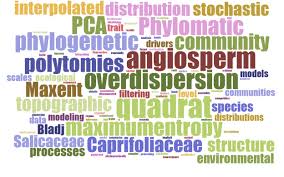Communicating science is absolutely essential in the scientific field. The use of jargon in the scientific field helps enhance science experts’ understanding of a specific topic but for the general public, jargon can confuse and make topics less interesting. Jargon is like an elite club – great for the people who are already in the club but so exclusive that others who want to join are unable to.
The Struggle with Communicating Jargon

I have friends in different science fields such as physics and computer science who don’t understand when I’m trying to explain a new finding that I found interesting in biology. It’s interesting because the jargon that I use is so normal to me that I forget that other people aren’t learning about, for example, antibodies and thymus glands. On the other hand, when they are talking to me about their assignments and using different words such as antiquarks and quasiparticles, I get super lost in the conversation and quickly lose interest because the wording is so confusing to me.
Students’ Perceived Understanding vs their Performance Don’t Align

A study carried out by Zukswert et al. assessed student’s self-evaluation of their understanding of biological terms and then tested their actual performance in being able to identify the words’ meanings. In general, students thought that they understood biological jargon better than they actually did.
For the evaluation, the categories used were information, words used both in English and biology, molecular, organelle, practice, and process. Examples of words tested are model, diploid, epitope, vacuole, assay, and secretion. The main takeaway from this study is that in order for students to advance in their specific disciplines, they need to be able to assess how much they actually know and develop a correct understanding of the meanings of jargon. Zukswert et al. say that for students to be able to improve their understanding, they need to have more opportunities to encounter these specific words and receive feedback on their understandings.
I think this study really shows how even biology students who are learning about topics where specific vocabulary is required to further their understanding struggle with jargon. Personally, I encounter difficult biology terms often and I have a slight grasp of what these terms are supposed to mean but I’m not always entirely sure so I have to go search them up online.
Is there anything we can do?
In order to better communicate our findings and/or make it more interesting for readers, we can try to use more common jargon or to make sure to define the jargon that we use. We can also run our findings past our friends who aren’t specialized in our fields to see if they have any trouble understanding any words.
-Jennifer Yu
